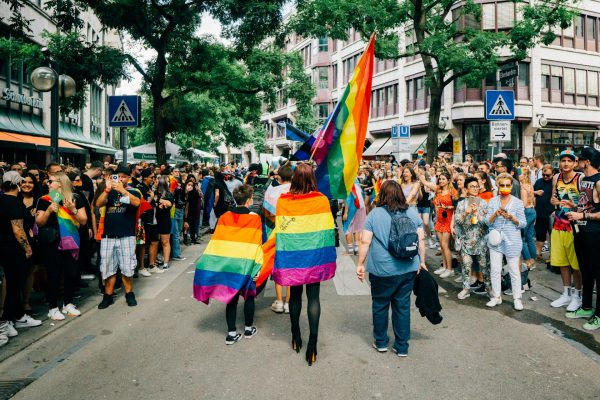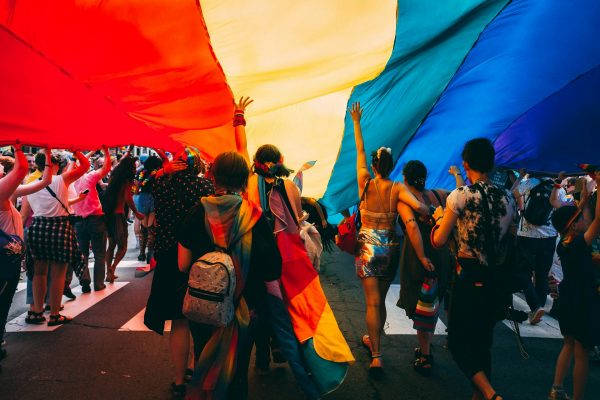In 2015, I made a point to read more books of or relating to “activism.” As the year comes to a close, I want to share the literature I enjoyed most with you all. So get a pen and paper, because your 2016 reading list is here.
- Excluded: Making Feminist and Queer Movements More Inclusive, Julia Serano.
Excluded is a collection of essays about instances of exclusion happening within Queer communities. The book is separated into two sections. The first, “On The Outside Looking In,” outlines exclusionary experiences Sereno has personally encountered or endured within Queer circles as a transsexual woman, bisexual person, and other identity intersections. The second, “New Ways of Speaking,” discusses what we can all do to make movements inclusive of everybody, recognizing exclusion before it happens. The title sounds somewhat jargon-y, but the introduction is “A Word About Words,” defining terms in an accessible manner, also explaining why and how they’ll be used within the book. Serano paints jargon as elitist and part of what makes Feminist and Queer movements inaccessible to some folks. Serano’s allegories are exceptional, easily grasped, and comprehensive. Excluded is a great introduction to inclusivity, important for anyone participating in any movement.
2. Pro: Reclaiming Abortion Rights, Katha Pollitt.
This book is exactly what it sounds like. Presenting statistics about how Americans view abortion versus how politicians view abortion, asking the question “What Is a Person” and “What Do Abortion Opponents Really Oppose,” laying out several myths associated with abortion, Pro is both evidence-based and politically nuanced. Pro doesn’t touch comprehensively on the history of abortion but does touch on the here-and-now, and how we arrived at the present climate. Still, certain aspects are problematic. There are innumerable instances of cissexism throughout (though one could argue that is to be expected). Pro also vehemently denies the fact that Margret Sanger (credited as the unofficial founder of Planned Parenthood) was an avid White Supremacist supporter of Eugenics. Those looking for a book discussing the current state of reproductive justice, the politicization of it, how and why body policing truly and violently oppresses women and other femme-type folk, Pro is likely a good choice. Keep in mind, it is a bit in-your-face at certain points.
3. Bitch Magazine.
Bitch describes itself as “Feminist Response to Pop Culture,” and hot damn it absolutely is! Bitch Magazine began as a small zine and grew into arguably the most intersectional, inclusive, and comprehensive Feminist publication. “Pop Culture” is not treated as just media; it is how consumers of media interpret that information, and what it means for those in marginalized demographics. Print issues are generally themed (the current issue, for example, focuses on ‘nerd culture’ and where women and other femme-type, queer folks, and disabled folks fit into/are excluded by it). Each issue includes interviews with artists and musicians, book and film reviews; the art, film, music, books, and so on in Bitch highlight authors and directors existing at marginalized intersections. Bitch Magazine has an accompanying website (non-themed) where anyone and everyone has access to all articles and can participate in ongoing discussions.
4. Body of Truth: How Science, History, and Culture Drive Our Obsession with Weight—and What We Can Do About It, Harriett Brown.
The book is true to the title. Brown showcases the science of Diet Culture including the economics of marketing, use of psychological tactics to induce and to enforce body hate, and the medicalization of ‘fat; how ‘fat’ folks are denied proper health care due to assumptions by doctors that a fat individual’s health problems are caused solely by weight (which leads to serious illnesses going untreated and, in more than one case, death). Brown implements several short narratives per chapter; hearing real stories from real people in their own words certainly has the ability to make skeptics pause and consider that fatphobia and diet culture do exist in very harmful ways. Everyone should read Body of Truth. It sets the record straight on body shame, even if it doesn’t incorporate many nuances.
5. Bi: Notes for a Bisexual Revolution, Shiri Eisner.
Bi is refreshing in that it is not Western-centric, the author hailing from Occupied Palestine. Eisner uses trigger warnings throughout (and indicators of when a trigger ends!), a conscientious show of respect to readers. Terms used in Bi are defined in blurbs on the pages they appear on, and the author explains the use of one term over another is not meant to discredit any other group. Speaking of a certain type of oppression is not meant to discredit any other type of oppression, and reminds the reader that the context may not be what is expected because it is not being written in a Western frame. Bi’s conversational tone of pairing emotionally and socially complex structures when discussing bisexuality gives a sense of safety. Eisner deconstructs bi-invisibility, concepts like ‘straight-passing,’ and discusses the unique subjugation and invisibilization bisexual men face. A solid read for any Queer folk, especially those who experience bi-erasure, bisexual men, and skeptics who believe that bisexuality reinforces the gender binary.
6. The Craft Series, Max Gladstone.
The search for inclusive fiction often yields little. Gladstone’s The Craft Series is a wonderful exception. Four books are out to date: Three Parts Dead, Two Serpents Rise, Full Fathom Five, and Last First Snow. The series brings in heavy subjects like addiction, sexuality, class, occupation, misogyny, gentrification, trans-ness, racism, even water rights. The books follow a backstory which ties themes together: past God Wars. There are characters on both sides, those who fought for their Gods, those who were part of the Craft (a kind of law-magic) uprising. Those who were too young to have experienced the God Wars, but whose lives are nonetheless impacted by them shine as important as well. Perspectives are nuanced; no person or party is painted as ‘the bad guy.’ The brilliance and beauty of The Craft Series is “activist” literature wrapped up with a fast-paced, engaging semi-SciFi bow. Even those who don’t dig SciFi will absolutely love it.






